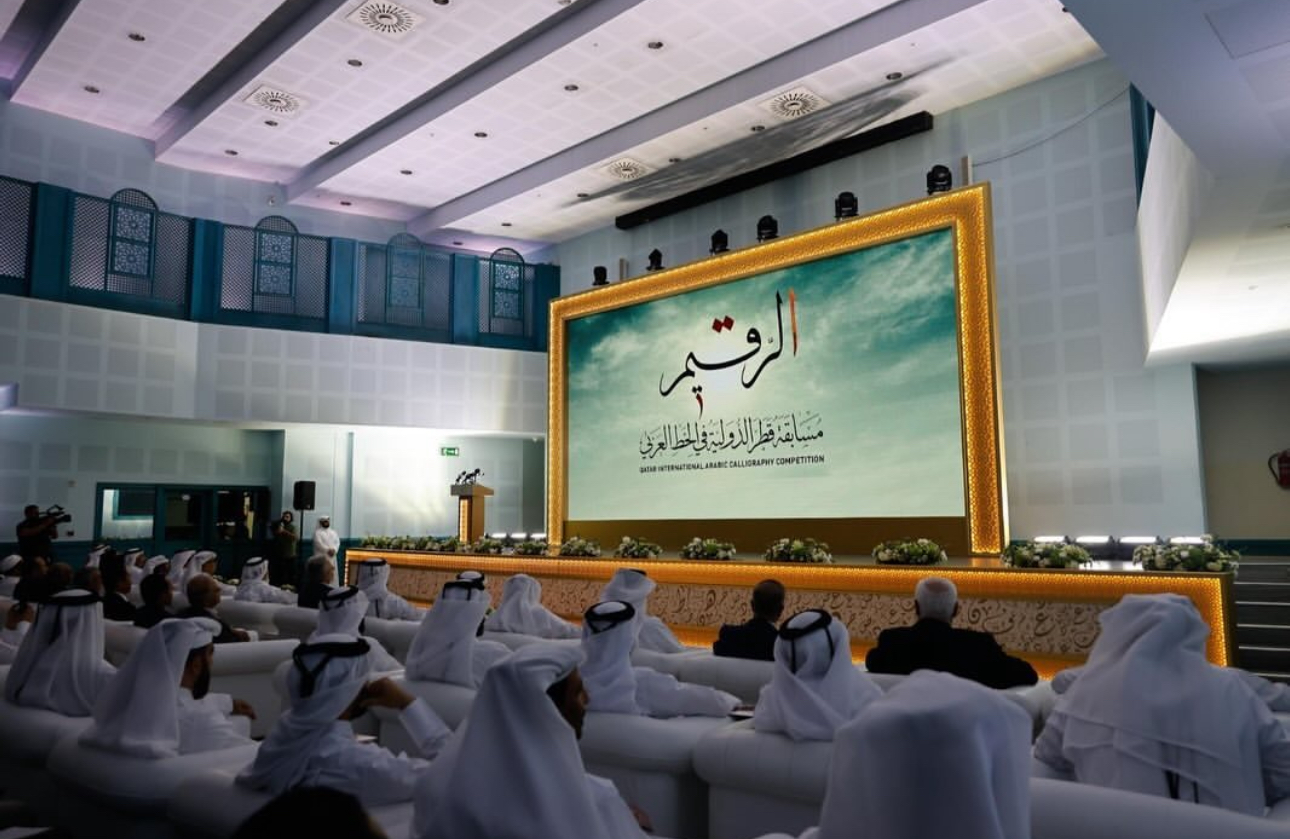The competition offers a total prize money of one million Qatari riyals ($275,000) making it one of the largest international calligraphy competitions.
The first edition of the Qatar International Arabic Calligraphy Competition, otherwise known as Al Raqim, has been inaugurated by the minister of endowments (Awqaf) and Islamic affairs, Ghanem bin Shaheen Al Ghanim.
The inauguration ceremony took place on Tuesday at Doha’s Sheikh Abdulla bin Zaid Al Mahmoud Islamic Cultural Centre, which is spearheading the competition in coordination with the ministry and Qatar’s Museum of Islamic Art (MIA).
An array of state officials, prominent calligraphers, and calligraphy enthusiasts from around the world attended.
During opening remarks, Saleh bin Ali Al Marri, director of the Islamic centre and chairman of the Al Raqim organising committee, said that the goal of the initiative is to bolster Qatari contributions to culture on the global stage.
He added that Al Raqim will promote intercultural exchanges between Qatar, the Arab world and beyond. This aligns with the government’s manifesto outlined in the Qatar National Vision 2030, which envisions the Gulf state having an increased role in fostering cultural exchanges – especially with Arab nations.
For her part, Shaika Al Nassr, MIA director, said the Al Raqim initiative will contribute positively to Qatar’s goals of becoming a hub for Arabic culture and arts. She also hoped it would create a competitive and innovative platform for the region’s youth to face the cultural challenges of the day.
Award categories
There are five categories featured in the competition, each recognising eight winners. Among these is the ‘Thuluth Script: Jeli and regular’ division, with a first-place prize of 85,000 Qatari riyals ($23,400).
The top prizes for the ‘Nashk Script,’ ‘Diwani Jeli Script, ‘Nasta’liq Jeli Script’ and ‘Kufic Quranic Script’ divisions are 70,000 Qatari riyals ($18,700) respectively.
Al Marri described the contest as a visual marker that will support the Arabic language, enrich Arab identity and revive Islamic culture and arts while also promoting cultural dialogue.
Al Raqim’s chairman added that through calligraphy, the competition will aid in preserving the language of the holy Quran.
The event is open to men and women aged 18 and above, from Qatar and other Arab countries. Entrants may only submit one original calligraphy art piece.
The members of the judging panel, which will consist of five esteemed calligraphers from around the world, will be announced at a later date, the Qatar News Agency reported.







